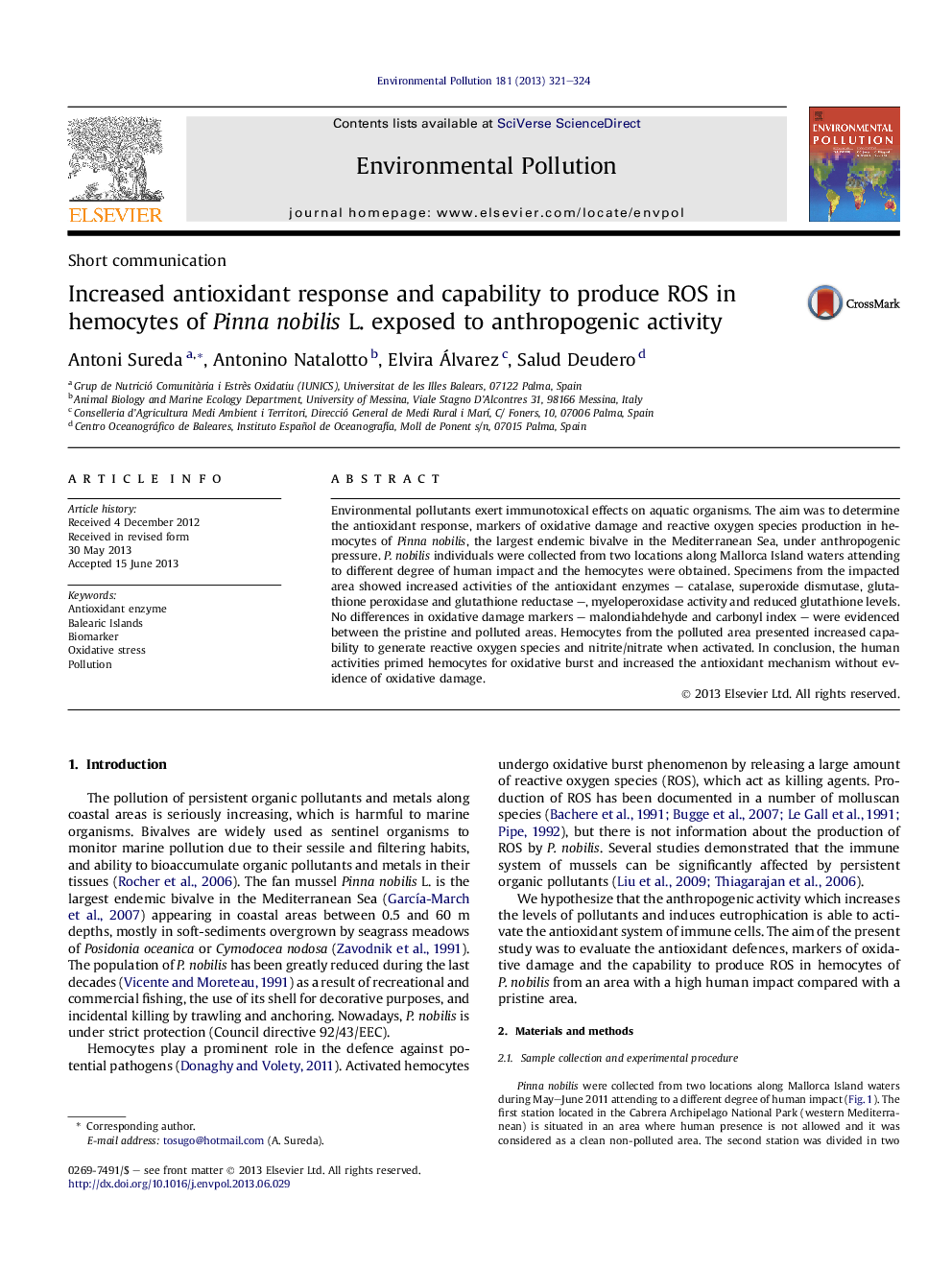| Article ID | Journal | Published Year | Pages | File Type |
|---|---|---|---|---|
| 6317358 | Environmental Pollution | 2013 | 4 Pages |
Abstract
Environmental pollutants exert immunotoxical effects on aquatic organisms. The aim was to determine the antioxidant response, markers of oxidative damage and reactive oxygen species production in hemocytes of Pinna nobilis, the largest endemic bivalve in the Mediterranean Sea, under anthropogenic pressure. P. nobilis individuals were collected from two locations along Mallorca Island waters attending to different degree of human impact and the hemocytes were obtained. Specimens from the impacted area showed increased activities of the antioxidant enzymes - catalase, superoxide dismutase, glutathione peroxidase and glutathione reductase -, myeloperoxidase activity and reduced glutathione levels. No differences in oxidative damage markers - malondiahdehyde and carbonyl index - were evidenced between the pristine and polluted areas. Hemocytes from the polluted area presented increased capability to generate reactive oxygen species and nitrite/nitrate when activated. In conclusion, the human activities primed hemocytes for oxidative burst and increased the antioxidant mechanism without evidence of oxidative damage.
Related Topics
Life Sciences
Environmental Science
Environmental Chemistry
Authors
Antoni Sureda, Antonino Natalotto, Elvira Álvarez, Salud Deudero,
